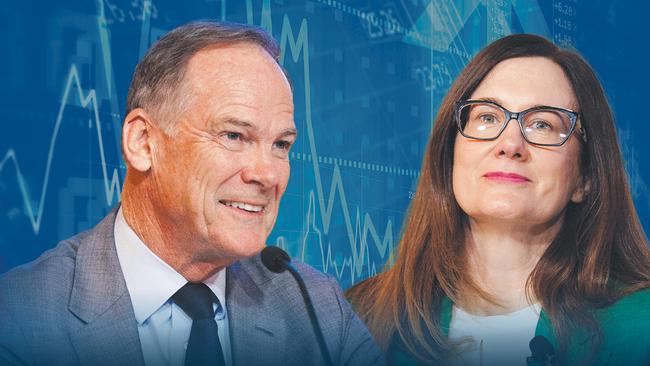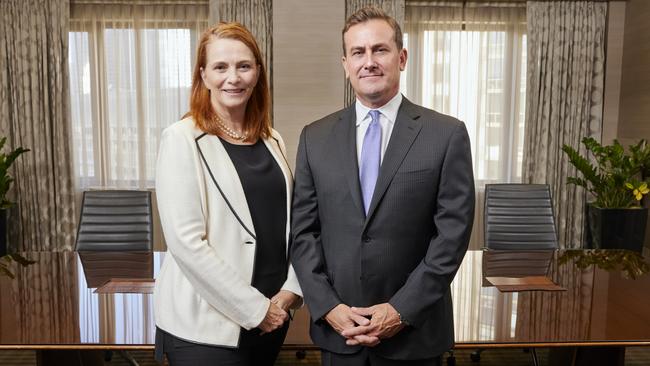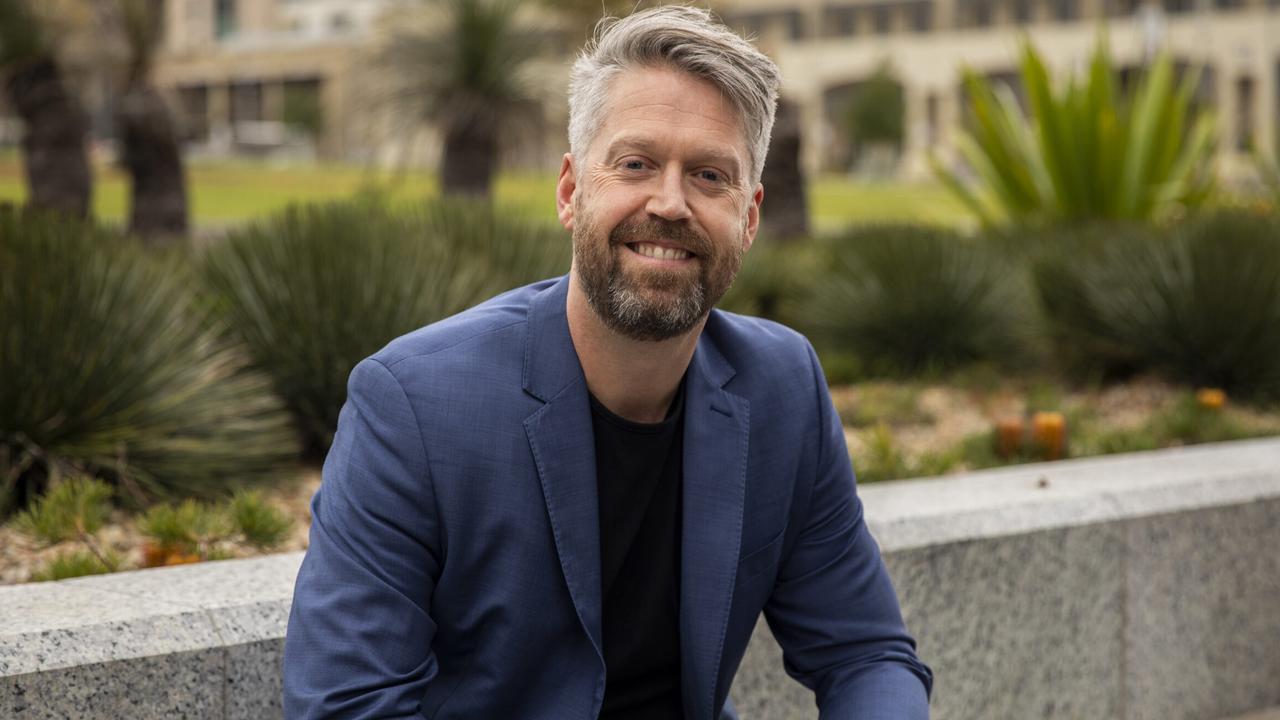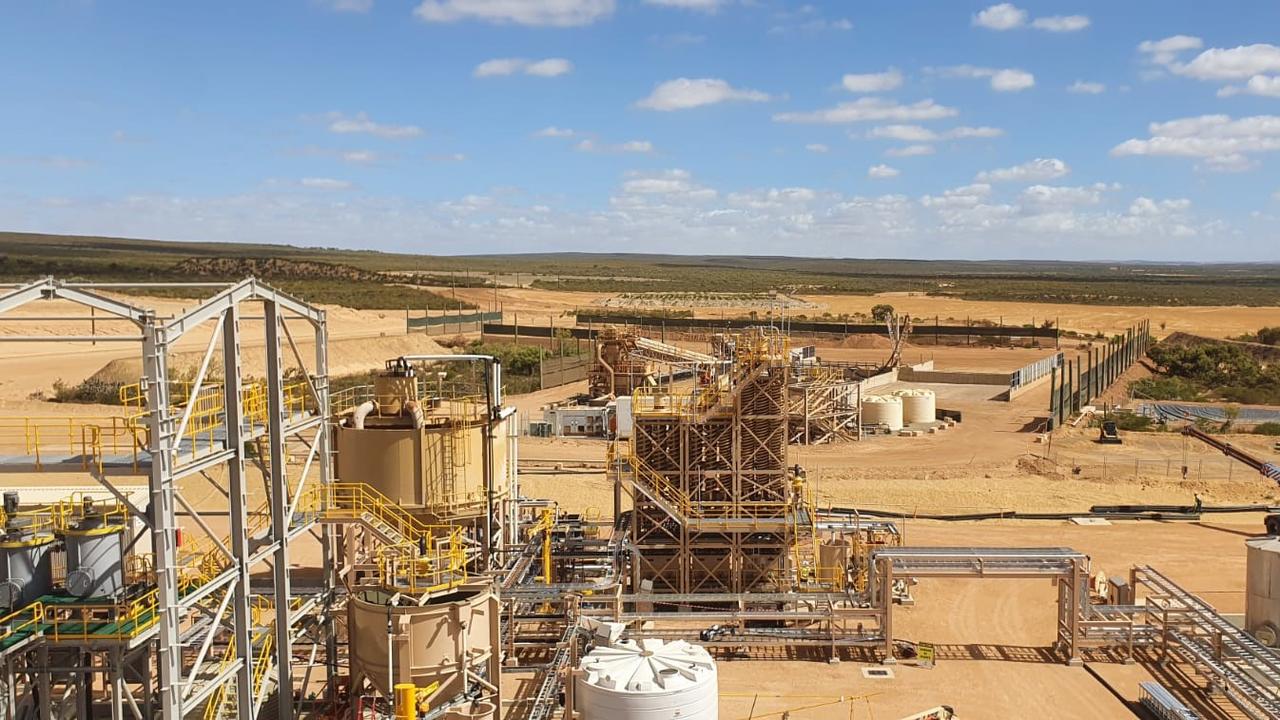ASX in defence mode as James Hardie deal sparks shareholder revolt
The ASX leans into the letter of the law rather than its ‘moral principals’ as the unpopular James Hardie deal unites investment minds like never before.

Business
Don't miss out on the headlines from Business. Followed categories will be added to My News.
The Australian Securities Exchange is clinging to its obligations of confidentiality to justify its secrecy in allowing James Hardie to circumvent shareholder rights over a deeply unpopular $14bn takeover bid that leading investors say undermines shareholders of all ASX companies.
Former ASX chair Maurice Newman described the market operator’s approach as legalistic and a departure from its discretionary mindset.
James Hardie incurred the wrath of Australia’s investors when it announced last month the $US8.75bn ($14bn) purchase in cash and shares of Azek, a US building materials company, and its planned move to the New York Stock Exchange. It never intended to seek shareholder approval to issue the new shares required to fund the deal, nor for its move to New York, compelling 21 investment managers and super funds to express their unified criticism in a letter to the ASX.
The ASX issued a waiver to James Hardie that has not been released.
Mr Newman said it appeared the stock exchange had shifted to a legalistic “rule of law” methodology of tackling company requests rather than the “spirit” of what a company like James Hardie was trying to achieve.
“It appears the intent is to avoid giving shareholders a vote, which prima facie should weigh heavily on the ASX,” said Mr Newman, who also chaired the ABC and was the local boss of Deutsche Bank, which bought stockbroker Bain & Co.
“The problem is we now have the rule of law, which is fine, but it’s prescriptive. We used to pride ourselves on having a discretionary arrangement where it was the spirit of the law, rather than the actual law which governed the way companies behave.”
In a written response, ASX chief executive Helen Lofthouse and chair David Clarke said “we have been listening,” and alluded to the potential for the ASX to intervene if James Hardie were to apply for a foreign exempt listing.

The ASX has to be “mindful of not violating the confidentiality relied on by issuers when they deal with our listings compliance function which is headed by Daniel Moran,” the pair wrote.
On the matter of a foreign exempt listing, “where we were on notice of concerns that had been expressed by shareholders, we would want to hear and understand those concerns and would take them into account in forming our views,” the reply continued.
“In these circumstances, we expect that we would also advise the company that this would be a transparent process, appropriately inclusive of shareholders.”
The 21 investors who co-signed the letter to the ASX want an intervention and transparency around the waiver process.
James Hardie has a long history of trying to avoid responsibilities. First it was to the victims of its deadly asbestos dust, and now its responsibilities to Australian shareholders.
James Hardie shares have plummeted since it announced its “friendly” purchase of Azek almost four weeks ago at a 37 per cent premium to the target’s pre-announcement trading price.
The transaction comes with a record break fee of $US272m if it fails to complete. Incredibly, US shareholders in Azek will get a vote.
Investors are furious about many aspects of the deal: not only the incredible dilution they face, but also because they can’t call an extraordinary general meeting in time to fire the board. While James Hardie is listed in Australia and loaded with superannuation funds such as AustralianSuper, it is domiciled in Ireland.
As for the deal itself, most investors like Azek but have questioned the “full value” being paid by James Hardie CEO Aaron Erter.
James Hardie would not comment on the alleged friendship between Mr Erter and Azek chair Gary Hendrickson, or fellow Azek board member Howard Heckes, both of whom he previously worked with at US paint company Valspar, and both of whom will now join the James Hardie board.
Investor David Pace, a co-signee from Greencape Capital, had said he’s never seen “such disdain for shareholders” than this transaction, but now believes the ASX is taking a harder look at its position.
“I’m comfortable that a thorough review process is now under way and have every confidence that the ASX will address its fiduciary duties as it pertains to shareholders across the entirety of the exchange,” Mr Pace said.
Treasurer Jim Chalmers would not weigh in on the issue. “This is a matter for the ASX,” said a spokesman.
Mr Newman believes it might be time for the ASX to pivot back to the principles of the law rather than the letter. “You can push the envelope much more when you take that legalistic approach … and this company has a record,” says Mr Newman, referring to James Hardie’s attempt 20 years ago to avoid its asbestos liabilities by moving to The Netherlands. A NSW judicial inquiry found the move was not just for tax purposes, as it had purported.
James Hardie has said there would be no change to the asbestos liabilities obligations as a result of the Azek transaction.
“This is a real dilemma for ASX,” Mr Newman said. “I understand where they are coming from, because if you take that legalistic position, then they complied with the rules. But in days gone by there may have been more moral persuasion. We used to pride ourselves that we were principles based, and there was a moral underpinning to that.”
More Coverage
Originally published as ASX in defence mode as James Hardie deal sparks shareholder revolt





